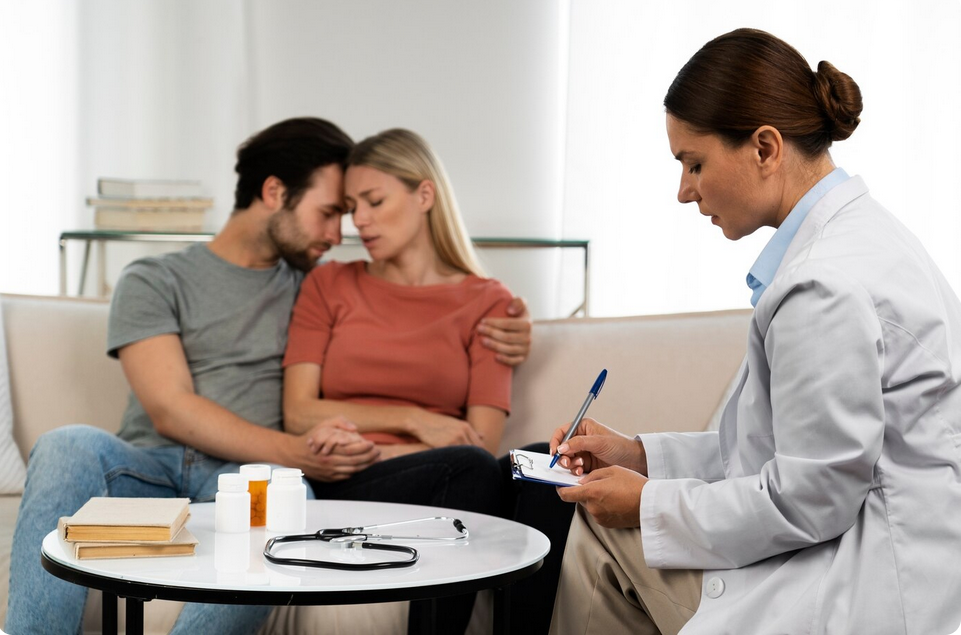Fertility challenges affect millions of couples worldwide, and with rising success rates and personalized care, many are now traveling abroad for treatment. South Korea has emerged as a leading destination for fertility workups and IVF (In Vitro Fertilization) consultations, offering cutting-edge reproductive technology, affordable costs, and compassionate, multilingual care.
Whether you’re exploring your first fertility assessment or looking for a second opinion, this post will walk you through everything you need to know about fertility workups and IVF consultations in Korea—from diagnostics to what to expect as a medical tourist.
🧬 Why Korea for Fertility and IVF?
South Korea offers an exceptional mix of medical excellence, advanced technology, and international patient services in reproductive medicine. Many fertility clinics in Korea boast:
- ✅ Board-certified fertility specialists trained in the U.S., Japan, or Europe
- ✅ Modern embryology labs with world-class IVF success rates
- ✅ English-speaking coordinators and teleconsultation services
- ✅ Transparent costs, shorter waiting times, and ethical standards
🔍 Step 1: Fertility Workup — What’s Included?
A fertility workup is a comprehensive evaluation of your reproductive health, typically performed over 1–2 days at a Korean fertility clinic. Here’s what it includes:
🧑⚕️ For Female Patients:
- Hormonal blood tests (FSH, LH, AMH, TSH, Prolactin, Estradiol, etc.)
- Transvaginal ultrasound to evaluate ovaries and uterus
- Antral follicle count (AFC)
- Hysterosalpingogram (HSG) or sonohysterography to check fallopian tube patency
- Cervical cultures and uterine lining evaluation
- Pelvic exam and medical history review
👨 For Male Partners:
- Semen analysis (count, motility, morphology)
- Scrotal ultrasound (if needed)
- Hormone panel (Testosterone, FSH, LH, prolactin)
- Lifestyle and health review
Most Korean clinics offer couple-based assessments, meaning tests are planned for both partners in a coordinated visit.
📋 Step 2: IVF Consultation — What Happens?
After reviewing your test results, a fertility specialist will walk you through potential causes of infertility and recommend next steps. During the IVF consultation, expect:
- A diagnosis discussion (e.g., PCOS, low AMH, endometriosis, male factor infertility)
- An overview of treatment options: IUI, IVF, ICSI, embryo freezing, egg donation, etc.
- Customized IVF protocol based on your age, ovarian reserve, and health
- Explanation of medication, timeline, and daily monitoring (if IVF is chosen)
- Estimated cost breakdown of IVF, medications, and embryo freezing
You’ll also be offered options for genetic screening (PGT-A/PGT-M), donor sperm/eggs, and cryopreservation.
🏥 Top Fertility Clinics in Korea (2025)
Here are some of Korea’s best-known clinics specializing in fertility and IVF:
| Clinic Name | Location | Key Features |
|---|---|---|
| CHA Fertility Center | Gangnam, Seoul | Korea’s most renowned IVF center, CHA network, global patient support |
| Maria Fertility Hospital | Nationwide | Over 30 branches; known for high success rates and efficient protocols |
| Jain Fertility Center | Gangnam, Seoul | Offers preimplantation testing, egg banking, international-friendly service |
| MizMedi Hospital | Seoul & Busan | Part of Eulji network; women’s health specialists |
| Seoul Rachel Fertility Clinic | Gangnam, Seoul | Boutique clinic with personalized IVF & egg freezing services |
💰 Fertility Workup & IVF Cost in Korea (2025)
| Service | Cost (KRW) | Approx. USD |
|---|---|---|
| Female Fertility Workup | ₩300,000–₩600,000 | $220–$450 |
| Male Fertility Workup | ₩150,000–₩300,000 | $110–$220 |
| IVF Cycle (incl. egg retrieval) | ₩5,000,000–₩9,000,000 | $3,700–$6,800 |
| ICSI (if needed) | ₩1,000,000–₩2,000,000 | $750–$1,500 |
| Embryo Freezing (1 year) | ₩500,000–₩900,000 | $370–$700 |
| PGT-A / Genetic Screening | ₩3,000,000+ | $2,200+ |
| Donor Egg / Sperm Add-on | Varies | Inquire with clinic |
Note: Many clinics offer bundled packages or first-time discounts for foreign patients.
✈️ IVF for Medical Tourists: What to Expect
✅ Before You Travel
- Pre-consult via Zoom or email
- Submit previous medical records, hormone tests, and ultrasound reports
- Plan for a 14–20 day stay for one IVF cycle (more if freezing or multiple cycles)
🏨 On Arrival in Korea
- Some clinics offer airport pickup and interpreter support
- Stay near the clinic (Seoul’s Gangnam district is IVF central)
- Clinics may help with hotel reservations or offer discounts
🕐 IVF Cycle Timeline (Basic Overview)
| Day | Activity |
|---|---|
| 1 | Blood tests, ultrasound |
| 2–10 | Ovarian stimulation (daily shots) |
| 11 | Trigger injection |
| 13 | Egg retrieval + sperm collection |
| 15 | Embryo transfer (fresh or frozen) |
| 18+ | Pregnancy test (hCG blood test) |
💬 Language and Support
Most leading clinics in Korea have English, Chinese, Vietnamese, or Arabic-speaking coordinators. Written materials, medication instructions, and consent forms are typically provided in multiple languages for clarity.
Some clinics even offer:
- Visa application support
- Medical reports for embassy use
- Translator-accompanied consultations
🧠 Pro Tips for Fertility Patients in Korea
- 📆 Book in advance — fertility clinics can be fully booked 4–6 weeks out
- 💊 Bring past medication lists or IVF records if you had treatment abroad
- 🩺 Consider freezing embryos during your first trip for future use
- 🛌 Avoid stress — many clinics recommend acupuncture or counseling during treatment
❤️ Final Thoughts: Why Korea Is a Smart Choice
Choosing to undergo a fertility workup and IVF consultation is deeply personal. In Korea, you’ll find:
- Medical excellence
- Affordable pricing
- Respectful and discreet patient care
- High success rates
- Personalized IVF protocols for different ethnicities and health profiles




